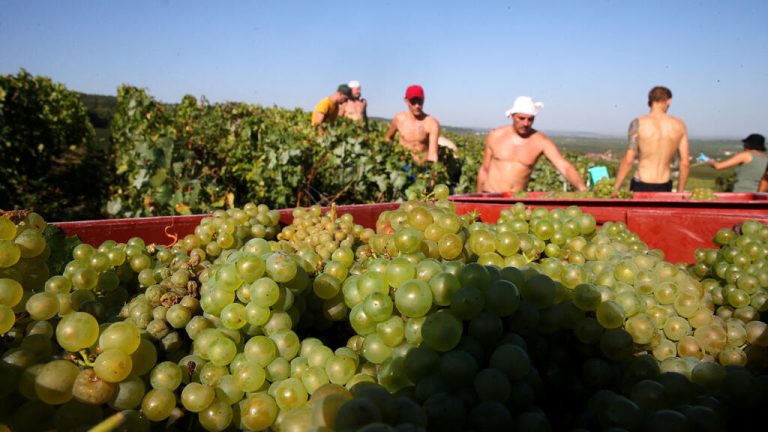As climate change threatens France, the world's largest wine producer, winemakers are looking to innovate. One solution, especially for Champagne producers, is to invest in cold-weather countries – including the UK.
Wine may not be at the top of the list of climate concerns.
But vines are among the crops most vulnerable to events such as forest fires, water shortages, hail and frost.
Indeed, hot winters followed by unusually cold springs upset the delicate balance of wine production in France.
Grapes grown on century-old vines ripen weeks earlier than they did in the 1980s. In the south, the fruits are smaller. In other regions, winemakers wake up before dawn to light hundreds of candles to melt the frost that kills the early buds.
Some producers are setting their sights on land in unconventional regions such as Britain, Belgium and the Netherlands.
The rise of English viticulture
While all regions in France are affected by rising temperatures, Champagne is one of the worst affected regions, according to a 2023 study by international viticulture expert group GESCO.
South-east England has similar temperatures to Champagne 30 years ago, with the same chalky soil. The ideal conditions for the Chardonnay, Pinot Noir and Pinot Meunier grapes that go into the famous sparkling wine could make it a production hub in the future.
French winemakers are buying up land there in an attempt to stay one step ahead of climate change.
There is no question of abandoning the legendary Champagne region, at least for the time being.
“We must advance in order to maintain the style and quality of our wines.”
Read more about the English RFI
Read also:
A bad year for Italian grapes makes France the world's largest wine producer
Migrant workers describe misery and exploitation in Champagne vineyards
French winemakers ask for help as mildew ravages Bordeaux grapes

